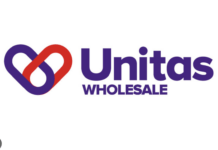Patrick Hadlock – “The UK market is one of the most advanced online grocery markets in the world – penetration is estimated to be around 5% already”
BW: The report says first mover advantage is important. What has happened since it was published in August and what areas have companies prioritised?

PH: The answer is different for each company based on its portfolio of categories, the markets it operates in, the behaviour of its core consumer segments, and its overall digital ambition. In general, companies are driving quick wins, such as investments in social media and online merchandising, to gain their fair share of digital distribution, as well as placing selective disruptive bets, such as digitally enabled direct-to-consumer business models and building exclusive digital brands.
In the US it is a ‘1-5-10’ proposition. How would you classify the proposition for the UK market?
The UK market is one of the most advanced online grocery markets in the world – penetration is estimated to be around 5% already. We believe that continued double digit growth will occur. Even in the UK, we are only at the beginning of the mobile wave in this sector and experience from other sectors such as travel have shown that mobile can be hugely disruptive. We believe that the principle of the ‘hybrid world’ is applicable to the UK as well – different categories and markets will move at different rates.
Goldman Sachs is projecting that digital sales in the UK grocery channel will grow by 11.8% a year to 2020; would this rate of growth align with your thinking?
Continued double-digit growth will occur. We refrain from making long-term point estimates on growth – digital adoption in other categories has shown that it is non-linear and tipping points occur. These are different by category and market.
What skills does a UK wholesaler need to develop to take part in the growth story? Is there an opportunity for them to partner with an Alibaba or Google?
Yes – supply chain with e-com players like Alibaba, partnerships with Google to provide marketing services.
And what are the opportunities and risks?
The opportunities are enhanced service delivery through advanced sensors and analytics (product information, replenishment, data transparency, fulfilment time reduction), diversify to serve emerging e-commerce needs, such as managing the virtual supply chain, product information, images and so on, serving as a delivery platform for manufacturers. The risks? Information asymmetries shrink and disintermediation.
What data will become more important in the future?
Ownership of consumer data in the digital age will drive competitive advantage – how they interact digitally across the path to purchase, what digital touch points are best served to cater to their shopping occasions.
How should they try to partner with manufacturers? Can you suggest what their strengths may be?
Similar to the opportunities I mentioned.
You say in the report that as order density rises, costs fall quickly. This suggests that some UK online grocery is already profitable. Do you believe that the supermarkets that moved first have early-mover advantage or is the UK market still to play for? Can Amazon win in the UK?
Profitability of online grocery for retailers depends on choices made on delivery, such as delivery windows and route optimisation, and order picking, including automation and product substitution. Hence, it will vary from one retailer to the next.
High-order density is helpful as it allows better scale, but that needs to be complemented with smart choices on delivery and picking to drive profitability.
First movers are advantaged: they are ahead on the capability curve, more agile and have first access to technology and talent. But competitive dynamics could erode profitability – in the rush to gain scale, retailers entice consumers with short delivery windows, free delivery, and so on, which put their economics under pressure. We’ve seen this happen in the UK.
This is a brilliant report: what was the best question you asked?
We looked to develop a point of view for the US market on key questions such as how deep and fast things will change, who will win and lose, and how should companies adapt to capture the growth.







